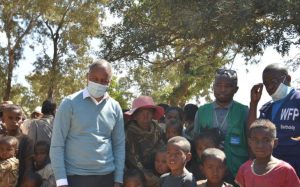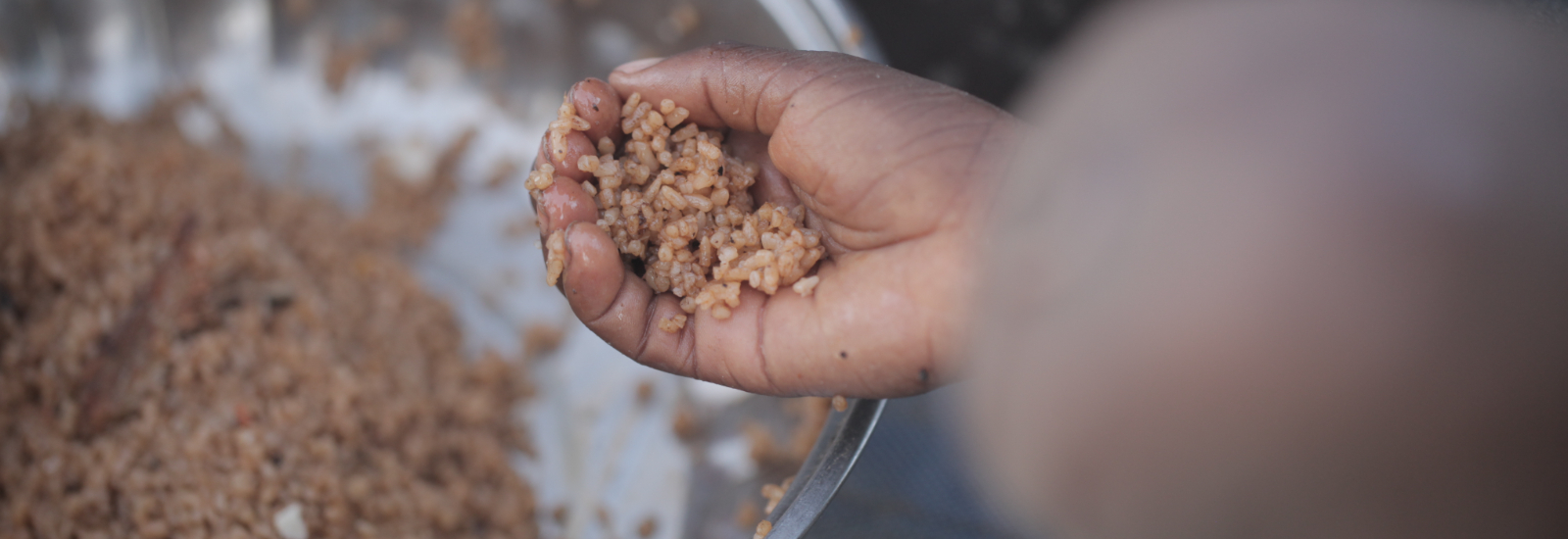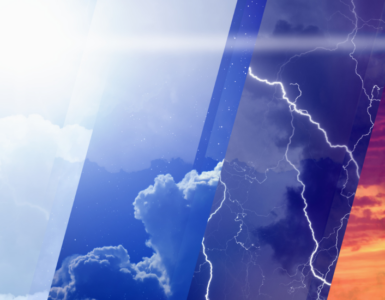“We should talk about climate change, and we should talk about natural disasters, but we should also talk about the opportunities and solutions.” Wise words from Reading graduate, Menghestab Haile, Regional Director for Southern Africa at the World Food Programme.
It was growing up in Ethiopia and witnessing first-hand the devastating effect that the climate was having on his country that motivated Menghestab to study meteorology. He said:
“In 1984 and 1985 Ethiopia was hit by a drought which affected the regions farming and livelihoods. After seeing the impact that the climate had caused on families and communities, I decided I wanted to learn more about our changing climate and how I could better prepare my country for the future.
“I chose to come to Reading because it was the leading university dealing with climate and climate issues in Africa.”
Menghestab’s doctorate was focussed on how clouds are formed and why droughts happen in Sahel, Africa. He shared that both Professor Alan Thorpe and Professor Brian Hoskins were incredibly supportive to him throughout his studies and were aware of his personal mission – to try and find ways to solve the existing agricultural challenges in Ethiopia due to climate change.
He said: “Although they had not directly experienced the impact that a drought has on a country, they were both aware of the challenges back in Ethiopia.
“By sharing my first-hand experiences of smallholder agriculture, the impact of a drought, and the impact of too much rain, I felt I was able to give valuable knowledge back to them.”
Upon graduating, Menghestab worked with Professor Hoskins and Professor Thorpe for two years. Reflecting on his time at Reading, he said: “My experience – both through my studies and working at the University – was life-changing and played an important role in my future career.”
Effecting change
After a stint at Reading, and increasingly aware of the challenges that Ethiopia and the surrounding regions were continuing to face, Menghestab decided to return to his homeland.
He said: “If I was going to try and address some of these challenges, then I knew we needed people on the ground who were qualified to support the country’s decision makers – persuading them to be more prepared to respond to our changing climate.
“Through my experiences at Reading, I was trained in various ways that did not exist in Africa at the time, so myself and some of my counterparts decided to approach the Government of Ethiopia and other universities about effecting a change.”
In 1996, Menghestab helped the Ministry of Foreign Affairs set up the first email service for the Early Warning System – an initiative which aims to manage and prevent disasters from occurring in Ethiopia.
Fast-forward two decades, and Menghestab is now the Regional Director for Southern Africa at the World Food Programme (WFP), where his work aims to change the lives and livelihoods of underprivileged and marginalised communities in Africa.
Mitigating future disasters
Ahead of the 26th UN Climate Change Conference of the Parties (COP26), Menghestab shares his views on the challenges of food security in Africa and the solutions that are needed to help mitigate future disasters.
“I think that the biggest challenge we are facing is in how we better equip and empower smallholder farmers,” he explained.
“Farmers can produce crops, but if they don’t have the right seeds, land ownership, markets, warehouses or storage, then they are going to face significant hurdles. Once the production starts, we need the distribution, transport and other supply chain elements to be in place for smallholder farmers.”
However, Menghestab believes that it is a challenge that can be addressed, he said: “With the appropriate technology and seed selection research we have been able to help smallholder farmers in Southern Madagascar, but it is vital that we continue to carry out this work across the region.
“I hope COP26 will help focus more attention on practical solutions that build resilient and sustainable food systems, ensuring the most vulnerable communities will have access to nutritious food while protecting the environment.”
Looking ahead to the future, Menghestab feels that our society is now in a better position to respond to disasters that may occur due to our changing climate.
He said: “Advances in technology have presented us with a plethora of opportunities. For example – it wasn’t possible to study meteorology 30 years ago in Africa, but now you can study whatever you want from wherever you are.
“Access to these opportunities means more people can be educated in climate science to help make a tangible difference around the world.”
Turning his thoughts to today’s aspiring students, Menghestab said: “We should talk about climate change, and we should talk about natural disasters, but we should also talk about the opportunities and solutions.
“I encourage the students of tomorrow to continue to find solutions and interventions to improve food security in Africa. Without food and the right food systems, future generations will face considerable challenges.”
Find out more about the World Food Programme, discover more about studying meteorology at Reading, or take a look at what the University are doing ahead of COP26.







